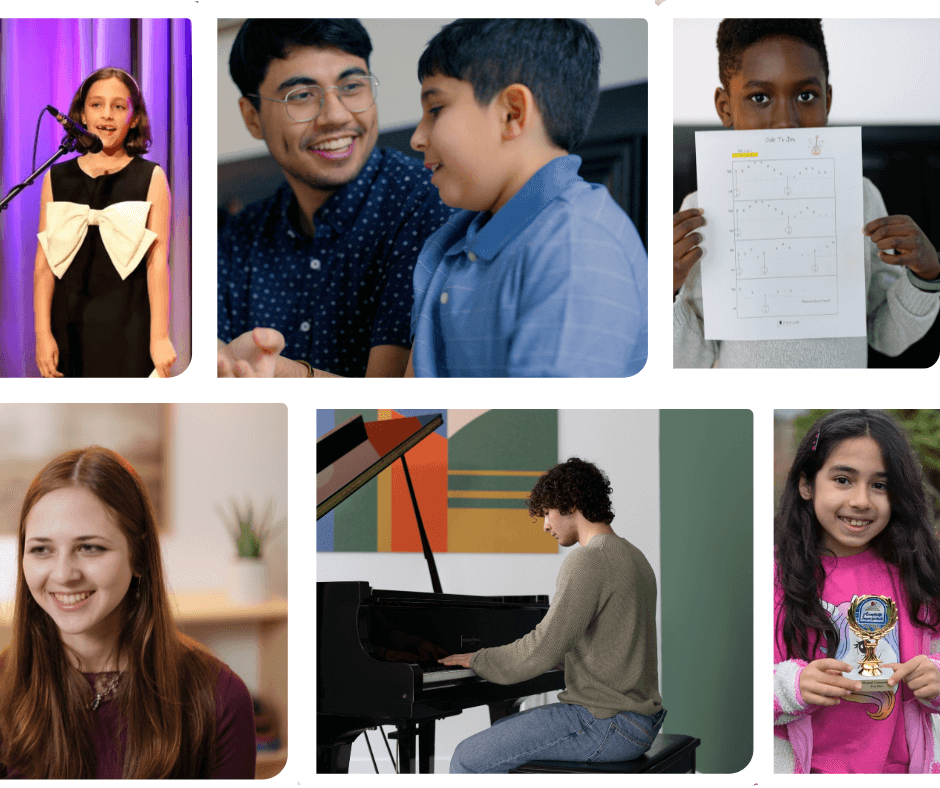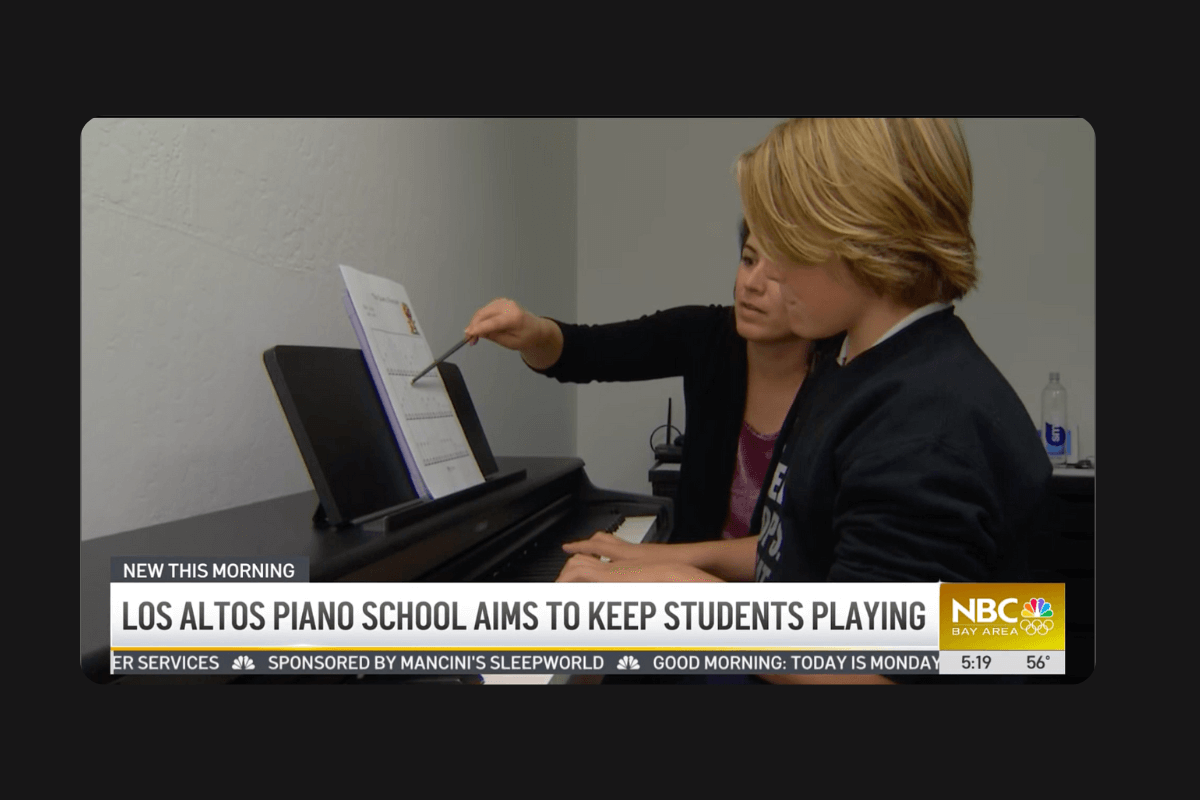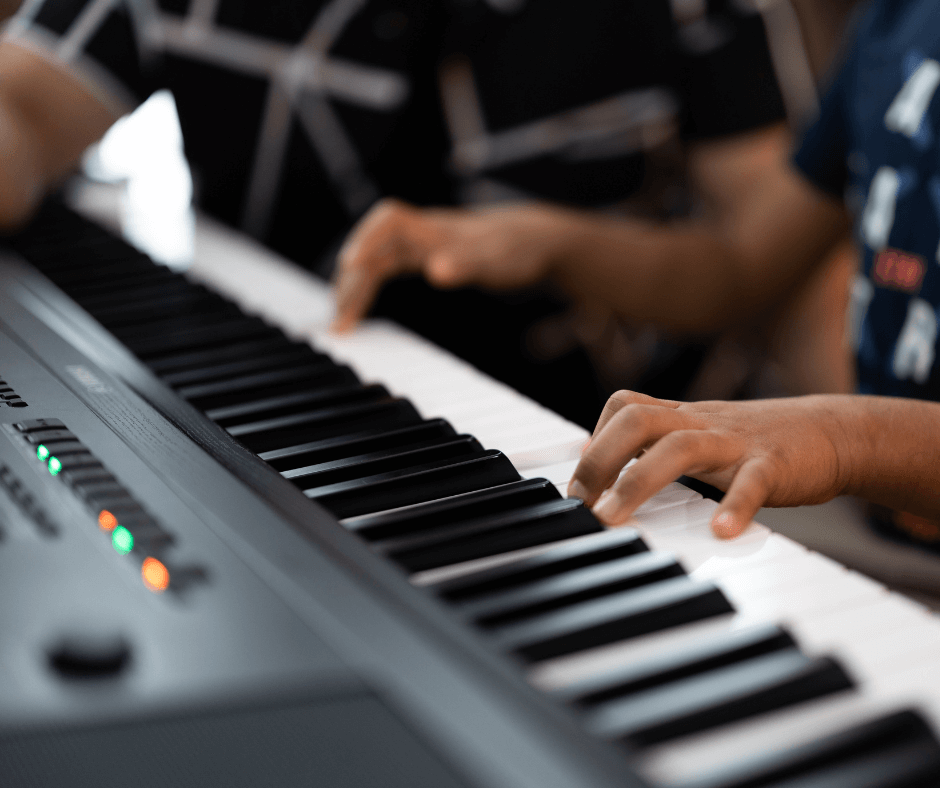How playing piano benefits the brain

Piano playing is one of the most complex activities the human brain can perform and creates what neuroscientists call a "whole-brain workout.”
When parents consider piano lessons for their children, they often think about the joy of music, recitals, or even the discipline they’ll learn from practice. An added and overlooked bonus are the extraordinary neurological changes that begin taking place in their growing brain. While the long-term cognitive benefits—including protection against dementia later in life—are fantastic, the immediate brain benefits your child experiences make all the lessons worth it.
The neuroscience behind the keys
Piano playing is one of the most complex activities the human brain can perform. It requires simultaneous coordination of visual processing, auditory feedback, fine motor control, memory recall, and creative expression. This multi-faceted engagement creates what neuroscientists call a "whole-brain workout," activating neural networks across both hemispheres in ways that few other activities can hold a candle.
I’ve been teaching piano lessons for almost 20 years and have noticed a very clear pattern: children who begin piano lessons experience measurable brain changes within just a few months of starting. These changes aren't just temporary! They represent fundamental improvements in how the brain processes information, solves problems, and manages emotions.
Six immediate brain benefits
Sharper memory and focus

Piano engages both brain hemispheres simultaneously, dramatically improving memory retention and attention span. When children learn to play piano, they must remember finger positions, note sequences, rhythmic patterns, and musical phrases. This constant mental juggling strengthens working memory pathways and extends attention span.
Studies have shown that children who take piano lessons demonstrate significantly better verbal memory and sustained focus compared to their peers. The act of reading music while coordinating hand movements creates a unique cognitive challenge that trains the brain to maintain concentration for extended periods, a skill that transfers directly to academics.
Enhanced coordination and motor skills

Fine motor skills and hand-eye coordination improve when both hands work independently during music reading. The left hand might be playing a steady bass line while the right hand performs a complex melody, all while the eyes track musical notation and the brain processes rhythm and timing. While students can develop this coordination playing video games, most parents I talk to would rather their child hone this skill playing piano!
Coordination enhances the brain's motor regions and builds crucial neural connectivity between different brain areas. The result is improved dexterity, better handwriting, enhanced athletic performance, and stronger overall physical coordination that benefits children beyond piano.
Boosted creativity

Improvising, composing, and interpreting music activates both imaginative and executive control brain areas at the same time. When children learn to play piano, they're not just reproducing notes on a page. They’re making decisions about how to play a piece and how playing that piece feels.
Musicians show heightened brain activity in regions linked to originality and flexible thinking, making piano a powerful creativity catalyst. This enhanced creative capacity extends beyond music into art, writing, problem-solving, and any field requiring innovative thinking. And in the age of AI, being a creative thinker is a critical life skill.
Stronger math and problem-solving skills

Piano training builds spatial-temporal skills, including the ability to visualize patterns and solve problems over time. Music is fundamentally mathematical, involving ratios, fractions, patterns, and sequences. When children learn to read music and understand rhythm, they're actually engaging with mathematical concepts in a hands-on, intuitive way.
The pattern recognition and logical thinking required for piano playing strengthens the same neural networks used in mathematical reasoning and scientific problem-solving.
Reduced stress and increased emotional balance

Playing piano has calming effects on the nervous system, helping regulate cortisol levels, reduce anxiety, and promote emotional balance. The focused attention required for piano practice creates a mindful state that naturally reduces stress hormones and promotes relaxation, similar to meditation.
A parent of one of our teenage students told us, “I can tell what kind of day my child had at school by listening to how they play piano when they get home. I’m thankful she has piano as a tool to work through her emotions.”
This emotional regulation becomes a lifelong coping skill. Children who play piano learn to manage performance anxiety, process emotions through music, and develop healthy responses to stress.
Increased IQ and academic performance

Long-term piano lessons are associated with increases in overall intelligence, problem-solving ability, and academic performance. The cognitive boost extends far beyond music into all areas of learning including reading, math, and standardized tests.
This isn't simply correlation! The complex neural networks developed through piano practice create fundamental improvements in how the brain processes information, leading to enhanced cognitive abilities across all academic subjects.
Unlock the benefits of piano lessons
The developing brain is remarkably plastic, meaning it can reorganize and strengthen neural connections throughout childhood and adolescence. Piano lessons take advantage of this plasticity, creating positive changes that compound over time.
The most remarkable aspect of these benefits is how quickly they begin. While mastering piano takes years of dedicated practice, the brain benefits start almost immediately. From the first lesson, your child's brain begins forming new neural pathways, strengthening existing connections, and developing cognitive skills that will serve them throughout their life.
These benefits during childhood are just the beginning! The cognitive advantages of piano study continue to grow and develop, ultimately providing protection against cognitive decline and supporting lifelong brain health.
The question isn't whether your child should learn piano, but how soon they can start unlocking these incredible brain benefits. Sign up for lessons.
Sources:




